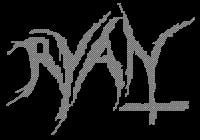Also, any number whose digits sum to a multiple of 3 is divisible by 3. For 51, 5+1=6, and 6 is a multiple of 3, so 51 can be cleanly divided by 3.
I’d forgotten this trick. It works for large numbers too.
122,300,223÷3 = 40,766, 741
1+2+2+3+2+2+3 = 15
threw up and died while reading this
I wish I could read 😞
Just squint and wing it.
That is way too accurate. Lol
^ This. The thing about Arsenal is they always try and walk it in.
The neat part is that if you add the numbers together and they’re still too large to tell, you can do it again. In your example, you get 15. If you do it again, you get 6, which isn’t the best example because 15 is pretty obvious, but it works.
But how do I prove it for 6
Get 6 apples. Duh.
Prove it for 2, then un-distribute.
There is a mathematical proof that 1 + 1 = 2 so surely you could make a proof for 6 ÷ 3 = 2
Witchcraft! Burn them!
deleted by creator
…I got better
Same with 9. There are rules for every number at least through 13 that I once knew…
I only know rules for 2 (even number), 3 (digits sum to 3), 4 (last two digits are divisible by 4), 5 (ends in 5 or 0), 6 (if it satisfies the rules for both 3 and 2), 9 (digits sum to 9), and 10 (ends in 0).
I don’t know of one for 7, 8 or 13. 11 has a limited goofy one that involves seeing if the outer digits sum to the inner digits. 12 is divisible by both 3 and 4, so like 6, it has to satisfy both of those rules.
7 is double the last number and subtract from the rest
749 (easily divisible by 7 but for example sake)
9*2=18
74-18=56
6*2=12
5-12= -7, or if you recognize 56 is 7*8…
I’ll do another, random 6 digit number appear!
59271
1*2=2
5927-2=5925
5*2=10
592-10=582
2*2=4
58-4=54, or not divisible
I guess for this to work you should at least know the first 10 times tables…
Another way to tell if 59271 is divisible by 7 is to divide it by 7. It will take about the same amount of time as the trick you’re presenting, and then you’ll already have the result.
But at least I seems like you could do that trick in your head
If you have no interest in the result of the division, then you can also do the division in your head, without retaining the result, with about the same effort.
deleted by creator
deleted by creator
I’m sure every digit has rules to figure it out if you get technical enough.
I looked up a rule for 7, and it seems like it would take about the same amount of time as actually dividing the number by 7.
Meanwhile, it looks like the rule for 8 is to see if the last 3 digits are divisible by 8, which seems like a real time save for big numbers.
deleted by creator
11 is alternating sum
So, first digit minus second plus third minus fourth…
And then check if that is divisible by 11.
Fuck you and take an upvote for coming here to state what I was going to when I immediately summed 5+1 to 6 and felt clever thinking “well I do know it’s not prime and divisible by 3” Shakes fist
I’ll get you NEXT time logicbomb!
Posted the same info. Silly me
What does the proof for this look like?
90°
Does this also work the other way round, i.e. do all multiples of three have digits that sum to a multiple of 3? All the ones I’ve checked so far do, but is it proven?
Indeed, an integer is divisible by 3 if and only if the sum of its digits is divisible by 3.
For proof, take the polynomial representation of an integer n = a_0 * 10^k + a_1 * 10^{k-1} + … + a_k * 1. Note that 10 mod 3 = 1, which means that 10^i mod 3 = (10 mod 3)^i = 1. This makes all powers of 10 = 1 and you’re left with n = a_0 + a_1 + … + a_k. Thus, n is divisible by 3 iff a_0 + a_1 + … + a_k is. Also note that iff answers your question then; all multiples of 3 have to, by definition, have digits whose sum is a multiple of 3
Thank you for this detailed response 🙏
And since both 3 and 17 are prime numbers, that makes 51 a semiprime number
Which is not really rare under 100.
Which is why it feels kind of prime, imho. I don’t know if other people get this, but I get a sense of which two-digit numbers are prime probably because of how often they show up in times tables and other maths operations.
3*17 isn’t a common operation though and doesn’t show up in tables like that, so people probably aren’t generally familiar with it.
Username checks out
Til thanks
Show off
Damn, logicbomb indeed!
Oh, neat trick!
51 = 3*17
3*17 = 17 + 17 + 17
17 + 17 + 17 = (10+7) + (10+7) + (10+7)
(10+7) + (10+7) + (10+7) = 30 + 21
30 + 21 = 51
yup, math checks out
I think you skipped a step:
1 + 1 + 1 + 1 + 1 + 1 + 1 + 1 + 1 + 1 + 1 + 1 + 1 + 1 + 1 + 1 + 1 + 1 + 1 + 1 + 1 + 1 + 1 + 1 + 1 + 1 + 1 + 1 + 1 + 1 + 1 + 1 + 1 + 1 + 1 + 1 + 1 + 1 + 1 + 1 + 1 + 1 + 1 + 1 + 1 + 1 + 1 + 1 + 1 + 1 + 1You miss a couple os steps too.
First, lets define the axioms, we’re using Peano’s for this exercise.
Axiom 1: 0 is a natural number.
Jump to axiom 6, define the succession function s(n) where s(n) = 0 is false, and for brevity s(0) = 1, s(s(0)) = 2 and so on…
51 = 3*17
3*17 = 3 + 3 + 3 + 3 + 3 + 3 + 3 + 3 + 3 + 3 + 3 + 3 + 3 + 3 + 3 + 3
3 + 3 + 3 + 3 + 3 + 3 + 3 + 3 + 3 + 3 + 3 + 3 + 3 + 3 + 3 + 3 = (2+1) + (2+1) + (2+1) + (2+1) + (2+1) + (2+1) + (2+1) + (2+1) + (2+1) + (2+1) + (2+1) + (2+1) + (2+1) + (2+1) + (2+1) + (2+1) + (2+1)
(2+1) + (2+1) + (2+1) + (2+1) + (2+1) + (2+1) + (2+1) + (2+1) + (2+1) + (2+1) + (2+1) + (2+1) + (2+1) + (2+1) + (2+1) + (2+1) + (2+1) = 34 + 17
34 + 17 = 51
👌
Math is mathing

This is why I love the number 7. It’s the first real prime number. All the others are “first”…1?2?3?5? No, those aren’t prime numbers, they’re “first” in a long line of not-prime numbers.
Then you get to 7. Is 27943 divisible by 7? If you take away 3 is it? If you add 4 is?
I have no clue, give me 10 minutes or a calculator is the only answer
That’s what a real prime number is.
Take the last digit of the number, double it and subtract it from the rest. If that new number is divisible by 7, the original one is as well. For your example:
2794 - 6 = 2788
I know 2800 is divisible by seven, so 2788 is not. Thus 27943 is not divisible by 7.
Quick maff shows that neither subtracting 3 or adding 4 will make the original number divisible by 7. Adding 1 or subtracting 6 will tho.
Our plan to find the witch has worked, boys! Get her!
For divisibility by 13, take the last number, multiply by 4 and add to the rest.
For divisibility by 17, take the last number, multiply by 5 and subtract from the rest.
For divisibility by 19, take the last number, multiply by 2 and add to the rest.
In fact, you can adapt the method to check for divisibility by any prime number k.
Quick check for divisibility: subtract 7 from it. If the new number is divisible by 7, then the original number is too
okay I understand that this works, but is there a mathematical proof for this?
There is a mathematical algorithm that proves this works in all cases. However this rule is not actually all that impressive as it appears at first glance! The number of operations (comparisons/subtractions/multiplications) you need to do is equivalent to just long-dividing the number by 7.
Consider: each operation of the rule removes one digit from the end. But you could just as easily apply the rule like “If the first digit is >=7, subtract 7 from it. Else, subtract the biggest multiple of 7 that will fit from the first two digits.” To skip multiplying, you can use the following jump table: if the first digit is 6, subtract 54 from the first 2 digits, if 5 subtract 49, if 4: 35, if 3: 28, if 2: 14, if 1: 07. That will also remove one digit from the front! But now you are just doing long division.
But what about 14, 21 and 28?14 - 4*2 = 6, not divisible by 721 - 1*2 = 19, not divisible by 728 - 8*2 = 12, not divisible by 7Or did I misunderstand the algorithm?EDIT: I didn’t realize that you remove the last digit when subtracting, got corrected in the replies.
It goes like this
-
create 2 distinct numbers by isolating the last digit from the other. For example, 154 becomes 15 and 4.
-
double the number derived from the last digit. So, the four becomes 8.
-
subtract from the number derived from the preceeding digits. 15 - 8.
-
the resulting number is 7. Seven is divisible by 7, so we know 154 is divisible by 7.
Oooh, I didn’t realize that you subtract from the original number without the last digit. Thanks
-
Yeah you got it wrong, it’s
1 - 4*2 = -7
2 - 1*2 = 0
2 - 8*2 = -14
First non fibonacci prime
Was this comment made by the timecube guy?
27943 - 7*1000 = 20943
20943 -7*3*1000 = 20943 - 21000 = -57
-57 is not divisible by 7 therefore 27943 is not divisible by 7.
The other posters algorithm was better, but I was exaggerating - ultimately my point is you have to math it out
Nobody told her that 100,000,001 is also divisible by 17
Holy crapballs
This one does more than the one OP showed
Amirite
my palms are sweaty
Mom’s spaghetti
17
Why did she share this? Does she hate us? I don’t even know her.
When you start playing modded minecraft you get really good at multiplying and dividing by 144
Why 144? You mean a Minecraft stack of 64?
Let me introduce you to the wonders of 144 millibuckets ingots
I don’t get it, why is this a big deal?
This is a shitpost
I know…I don’t get what the joke is supposed to be though.
It “looks” or “feels” prime. And being divisible by a prime like 17 feels even stranger.
It’s pretty common for numbers to be divisible by primes tho
You don’t say haha :D But there is no reason why people who don’t work or study in a math related field would have an intuition for that.
Fuck if I know, but look at the discussion this generated!
https://lemmy.ca/pictrs/image/58b19948-2d75-4d18-a2bb-fbf9362dc85b.jpeg
This I assume
Though the title of that meme should have been when millennials see zoomer memes
So is 100,000,001.
deleted by creator
I love how every reply has like the opposite energy to the meme. I also find math to be generally awesome.
That’s Lemmy for you!
Any number where the individual digits add up to a number divisible by ‘3’ is divisible by 3.
51 = 5+1 = 6, which is divisible by three.
Try it, you’ll see it always works.
There are tricks like that for a lot of numbers. For 7, chop off the last digit, double it and add it to what’s left. Repeat as required. If the result is divisible by 7 then the original number was. eg: 356 -> 35+12=47 not db7. 357 =>35+14 both db7 so we don’t even need to do the add.
double it and
add it tosubtract it from what’s leftClever.
Girl.
14: 1 + 8 = 7. Not db7
You clearly mean:
14: 1 + 8 = 9 (not db 7)
Someone else in this thread correctly stated:
“Chop of last digit, double it and subtract from what is left”
14: 1 - 8 = -7. (dB 7!)
Math is awesome, I didn’t know this trick!
Yes, that’s what I meant. The subtract rule works.
I knew that worked with 9. Hmm, does it work with 6?
Doesn’t look like it.
Technically it does work for 6, more literally, still aiming for 3, not 6. That’s half of it, if the starting number is even and divisible by 3 then it is also divisible by 6.
One of the reasons why I love the number 3. There are other neat digit sum tricks, see for example for the numbers 1 to 30 here: https://en.m.wikipedia.org/wiki/Divisibility_rule
They didn’t teach stuff like this in school, which is silly. This is the kind of thing that a kid would eat up. It’s like they wanted to make sure people hated math.
I guess I was one of the lucky few who learned this in elementary school. And later again.
I first saw the nine times finger trick in the movie ‘Stand And Deliver.’ I remember seeing it written out on a blackboard at some point, but never the finger trick.
Here is an alternative Piped link(s):
https://piped.video/-WOgLltWhgg
Piped is a privacy-respecting open-source alternative frontend to YouTube.
I’m open-source; check me out at GitHub.
I used to do this thing where I would figure out if a number was prime or not and it kept me sane. Realizing this isn’t, may have just caused my whole world to fall apart.
If you skipped checking divisibility by 3 you already messed up.
Technically, isn’t everything divisible by any number? You just get remainders and/or fractions in the result?
I mean, I still didn’t want to know this, but…
The definition for “divisible” is being able to be divided without a remainder.
isn’t everything divisible by any number?
Do 5/0
Okay, now what?
Restore a saved game to restore the weave of fate, or persist in the doomed world you have created
By definition to be divisible by a number you have to a have a whole number with no remainder as an answer
weird how ppl are getting all excited over this. weirder all the random math facts on the comments. and everyone checking with long math as if it might not be lol. I guess I’ll throw a few math facts in?
17 is a prime number. 3 is a prime number.
all numbers can be factored down to primes.
19 is a prime number.
19*3=57. is that one gross too?
Oh yeah? Then factor zero into primes, poindexter
shut up, fascist! 😭
What’s weird is that 17 feels like a small enough number where it seems like we should know intuitively what its multiples are. And it feels like by this point in our lives we should at least know all numbers up to 100 or so that are composite vs prime. But yeah it’s actually not that weird when you consider that the multiplication table usually stops at 12. And also that we really don’t get that much exercise in multiplication in daily life.
Nah, 17 is underage so its extra creepy.
19*3=57. is that one gross too?
It’s the Grothendieck prime!
Oh no! 😰
That made my back hurt.






























